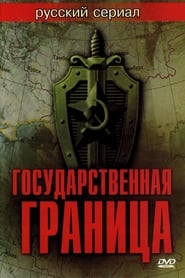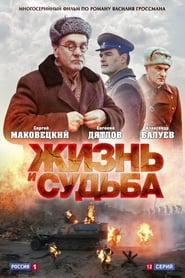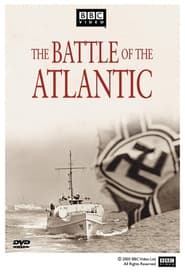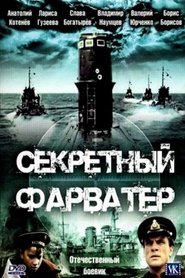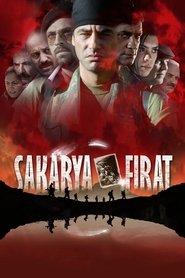Top Rated War Politics TV Series - Page 31
-
Spies
2013
-
State Border
1980
-
Life and Fate
2012
Life and Fate
2012
star 8.6The plot takes place in 1942-1943, during the defense of Stalingrad. The Jew Viktor Strum is a talented nuclear physicist working in one of the country's institutes on the creation of an atomic bomb. At this time, Strum's relatives die in Nazi camps and NKVD dungeons, and persecution begins against him. The inventor can only be saved by his scientific brainchild, which Stalin himself became interested in. The state needs such a powerful weapon as an atomic bomb. The scientist has to make a choice: to remain faithful to science and work for the "leader of the nation" or to abandon his vocation and be destroyed. -
Russia Is Young
1984
-
Attempted Murder
2018
Attempted Murder
2018
star 7In 1990 the head of the Treuhand, Hans-Georg Dahlmann, was targeted by the RAF. When he made Sandra Wellmann, mother of one son, his assistant, he had no idea what additional danger he was exposing himself to. Because Wellmann is doing common cause with RAF members Bettina Pohlmann and Klaus Gelfert and is supposed to provide them with information for the planned attack on Dahlmann. -
And Quiet Flows the Don
2015
star 3.8The action begins in 1912. The heroes of the painting - neighbors, villagers, Cossacks from the Tatarsky farm of the village of Vyoshenskaya - have lived on this land for centuries, they are connected by kinship, friendship, love, common labor and military service. But this durable and self-sufficient world with its unique way of life, habits and a special system of views and values is collapsing under the onslaught of bloody turmoil and revolution. Don is divided by hatred. The seemingly immutable age-old foundations of Don life - land, farm, family, military duty - are dissolving in the crucible of fratricidal war. The Melekhov, Korshunov, and Astakhov families are involved in the cycle of military and political events. -
Battle of the Atlantic
2002
star 6.9Explores the desperate struggle for survival on a hostile ocean during the longest and bloodiest battle of the Second World War. -
WWI: The First Modern War
2014
star 7When ancient war tactics became overwhelmed by powerful new weapons like tanks, air attacks, weapons of mass destruction and submarines, a pivotal game-changing moment in history occurred. History is delving into the background of each weapon explaining the how and why they were developed, the strategy, and their ultimate effectiveness. -
Adriano Olivetti
2013
Adriano Olivetti
2013
star 7.1In post–World War II Italy, genius industrialist Adriano Olivetti oversees the creation of the first all-Italian electronic calculator while theorizing a revolutionary business model based on the idea that profit should be reinvested for the benefits of the whole society. His vision catches the attention of powerful interests... -
March of Millions
2007
March of Millions
2007
star 4.8In 1944 many Germans in Eastern Prussia believed like Lena von Mahlenberg, daughter of a local aristocrat, that Hitler would surrender and spare them from being invaded by the vengeful Russian Red Army. He didn't and they had to flee. -
Till Death Tear Us Apart
2017
star 5.2After studying abroad, Liu Yusheng returns to find his inheritance stolen. Forced to teach, he reconnects with Zhou Yaohua amid political tensions, facing tough choices. -
Vidago Palace
2017
Vidago Palace
2017
star 2.8Vidago Palace has the background of the year 1936 and tells us a love story between two young people from different classes, ready to face all obstacles. -
Byl jednou jeden dům
1975
-
14: Diaries of the Great War
2014
star 7.6When war broke out in Europe in 1914, most people thought the conflict would be over by Christmas; they could not imagine how wrong they were. An attack in Sarajevo ended up becoming a snowball that swept the world: a new kind of warfare had begun, waged with techniques and means never seen before. By November 1918, ten million people had died and the political map of the planet had been redrawn. -
Prince of Lan Ling
2013
Prince of Lan Ling
2013
star 5.8A prophecy foretold that victory goes to the one who has the priestess' blessing. Yang Xue Wu, the last priestess of her clan, unwittingly embroiled in a war between Northern Qi and Northern Zhou. Although she foresees the tragic fate of Lan Ling Wang, the general of Northern Qi, she nonetheless falls in love with him and helps him win the war against Yuwen Yong, the king of Northern Zhou. But destiny can not be altered. -
Battleground
2012
Battleground
2012
star 8.8Battleground is a mockumentary comedy-drama television series created by J. D. Walsh streamed on Hulu. The show follows a group of political campaign staffers working to elect a dark horse candidate to the U.S. Senate in the battleground state of Wisconsin. Walsh serves as executive producer alongside Hagai Shaham and Marc Webb. The show marks Hulu's first foray into original scripted programming. It premiered online on February 14, 2012. -
Secret Fairway
1988
Secret Fairway
1988
star 8.2Year 1944 ... Year breakthrough victorious in World War II, but in the Baltic theater of naval battles yet quiet. The line of duty, the commander of a torpedo boat Boris Shubin accidentally discovers a secret German submarine fairway unmarked. An emergency throws it on the "Flying Dutchman" and makes it possible to lift the veil of the strictest secrecy of the Third Reich, which surrounds it ... -
Kings of Sects
2005
Kings of Sects
2005
star 5.6The series follows the rupture of Andalusia into many warring states, which allowed the northern Kingdom of Castile to expand its borders and take control. -
Palace of Desire
2000
Palace of Desire
2000
star 8.4Palace of Desire, also known as Da Ming Gong Ci, is a Chinese television series based on the life story of Princess Taiping, a daughter of China's only female emperor Wu Zetian. Directed by Li Shaohong and Zeng Nianping, the series starred Chen Hong, Zhou Xun, Gui Yalei and Winston Chao in the leading roles. It was first broadcast on CCTV-8 in mainland China on March 30, 2000. -
Sakarya Fırat
2009
 Netflix
Netflix
 Amazon Prime Video
Amazon Prime Video
 Apple iTunes
Apple iTunes
 Apple TV Plus
Apple TV Plus
 Disney Plus
Disney Plus
 Google Play Movies
Google Play Movies
 Paramount Plus
Paramount Plus
 Hulu
Hulu
 HBO Max
HBO Max
 YouTube
YouTube
 fuboTV
fuboTV
 Peacock
Peacock
 Peacock Premium
Peacock Premium
 Amazon Video
Amazon Video
 The Roku Channel
The Roku Channel
 AMC+
AMC+
 Kocowa
Kocowa
 Hoopla
Hoopla
 The CW
The CW
 Vudu
Vudu
 Starz
Starz
 Showtime
Showtime
 PBS
PBS
 Pantaflix
Pantaflix
 FXNow
FXNow
 Tubi TV
Tubi TV
 Kanopy
Kanopy
 Comedy Central
Comedy Central
 Crunchyroll
Crunchyroll
 Microsoft Store
Microsoft Store
 Redbox
Redbox
 Sun Nxt
Sun Nxt
 ABC
ABC
 DIRECTV
DIRECTV
 Crackle
Crackle
 Fandor
Fandor
 Plex
Plex

